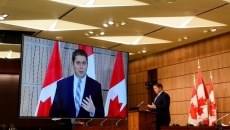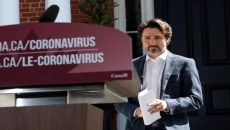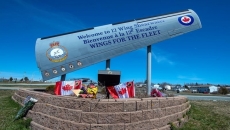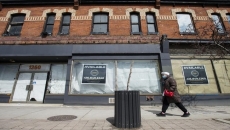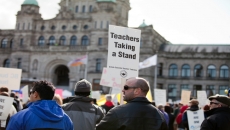Campaign ads on social media and digital media websites are coming close to rivalling television in spending on election advertising by some of Canada's major political parties, new reports show.
Elections Canada published the first expense reports from the 2019 federal election this week, listing what the Conservatives, Liberals, NDP and Marxist-Leninist Party spent during the campaign last fall. Other parties will have their reports published soon.
The ones already online give a glimpse at where parties prioritized their efforts last fall, including a first real look at how much they depended on the internet to get their message out to Canadians.
The Conservative campaign cost the most overall, with total spending on everything from advertising and polling to leaders' tours and fundraising coming in at $28.9 million. It was just shy of the $29.1-million limit Elections Canada established for the campaign.
The Liberals' expenses totalled $26.2 million, while the NDP, which has struggled with fundraising in recent years, spent only one-third of what they could have, at $10.3 million.
The Liberals spent the most in both 2011 and 2015.
For both the Liberals and Conservatives, more than half their bills came from advertising, at 55 per cent for the Tories and 53 per cent for the Liberals. The NDP dedicated 38 per cent of their campaign spending to advertising.
Television advertising still gobbled up the most money from all three campaigns, but online advertising was clearly the second choice. That would include buying ads on social media platforms like Facebook and Twitter, as well as ads to run on digital media websites.
The Conservatives spent more than $9.3 million on television ads, and $4.6 million for online ads. The Liberals spent $5.2 million on television and $3.8 million online, while the NDP doled out $1.9 million for television and $1.3 million online.
Television ads made up the biggest line item for the Conservatives, at almost one-third of their total bills, while the Liberals' biggest expense was for the leader's tour, which ate up one-quarter of their total expenses. Although the 2019 campaign was 40 days long, compared to the 76 days of the 2015 effort, the Liberals almost spent the same amount on the leader's tour — just over $7 million in 2015 and $6.7 million in 2019.
The Liberals are the only party that chartered two planes, using one to ferry around Prime Minister Justin Trudeau, his tour staff, and the accompanying media covering his campaign, and the other to take equipment ahead of time.
The leader's tour was also the biggest cost for the NDP, at $2.1 million, amounting to about one-fifth of their total spending. Jagmeet Singh's tour was scaled back considerably because of the party's issues with cash flow. He spent more time on buses and less time on planes than NDP leaders have in past campaigns, and significantly less than either Trudeau or Conservative Leader Andrew Scheer.
The Conservatives spent considerably less than four years earlier on polling. In 2015, the party dedicated 12 per cent of its spending to surveys and polls, but in 2019, that fell to three per cent. The Liberals and NDP both spent about the same proportion on polling.

